Now, it is the third boom of AI, isn’t it.
What kind of field would Professor Nitta’s specialized research field be in as easy-to-understand as possible?
One is the field of legal artificial intelligence. It is research that uses AI technology to help legal professors, for example, to predict judgments and search for precedents. Another field is the Dialogue Informatics, a field in which humans and computers interact. This is not just the exchange of words, but the study that uses a TV camera and a microphone to observe the other person, infers the other person’s emotions, and dynamically changes the topic. When a person becomes nervous, various changes appear, such as the voice rises, the speed of speaking becomes faster, and the body leans forward. We observe such information and predict emotions. The subject of the dialogue is not just a chat, but a negotiation, and the computer selects the appropriate remarks by guessing whether the human has begun to be impatient in the middle of the negotiation, or whether there is still room. The research of legal artificial intelligence and dialogue information is not necessarily different. Since there is an element that infers the other party’s mind in the interaction between the plaintiff and the defendant in the trial, as a development of legal artificial intelligence research, we have naturally advanced to the research of dialogue information.
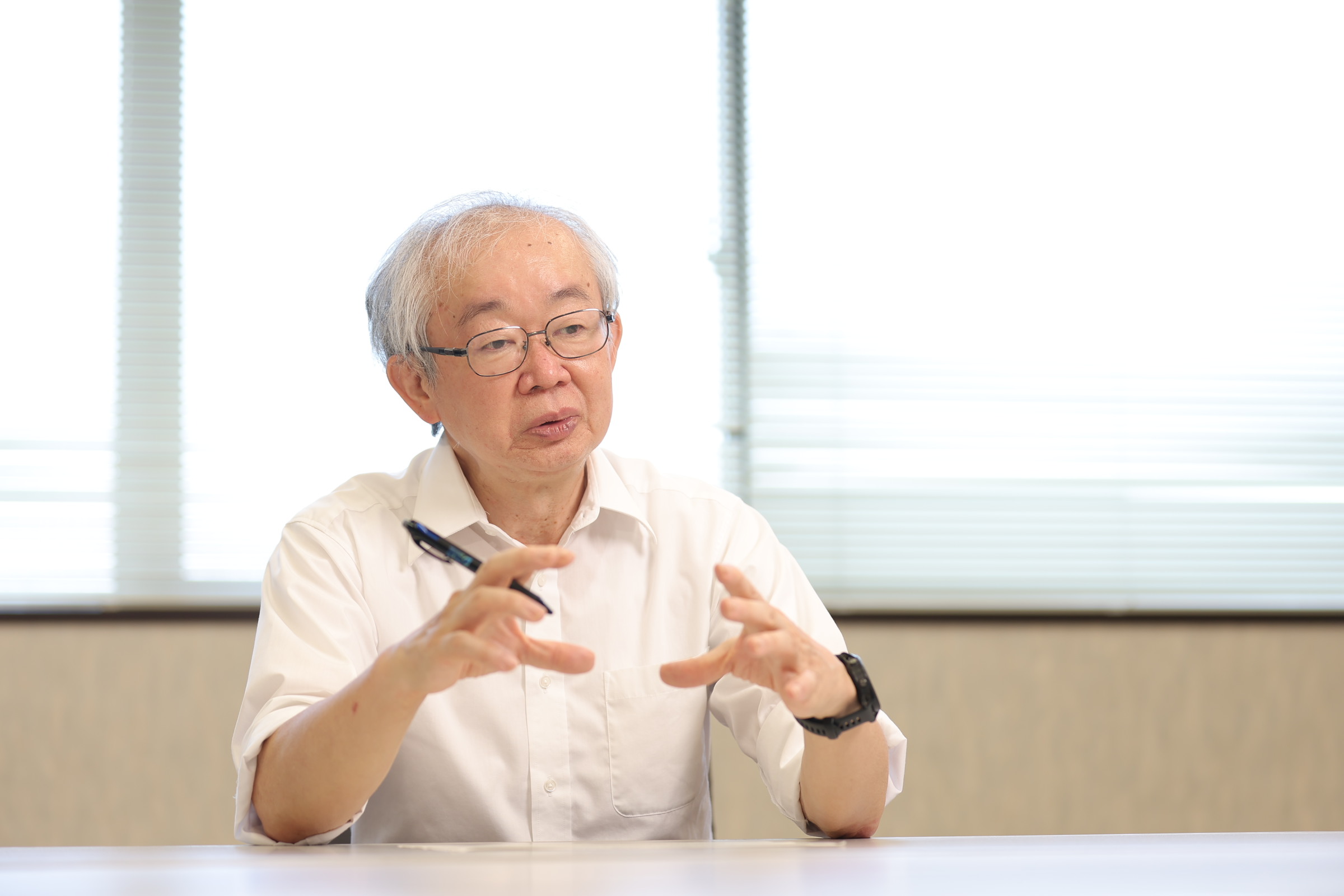
here was a word called emotion prediction, but is this something that can quantify human emotions?
Although we have quantified various observational data, it has not yet been proven how meaningful it is. For example, even if you predict the other party’s emotions based on the axis of whether the argument is favorable or unfavorable (numerical value) and whether the other party is excited (numerical value), the accuracy will be a problem first. Also, even if you can guess emotions with high accuracy, if the other party becomes bearish, there is not one correct answer, whether the computer side decides “Let’s compromise then” or “Let’s take more profit”. It takes a huge amount of experimentation to adjust various parameters and determine what kind of speech strategy is useful in what situations.
What triggered you to choose that field?
I had always wanted to do AI-related work since I was a child, but at that time, there was no laboratory at the Tokyo Institute of Technology that was conducting AI research, so I chose a laboratory that had an environment where I could use computers as much as possible as an individual. When I got a job, I wanted to choose a company that could research AI, but at the time, there were not many such employment places in Japan. I got a job at the Electrotechnical Laboratory (now the National Institute of Advanced Industrial Science and Technology (AIST)) and was finally able to start research on AI.
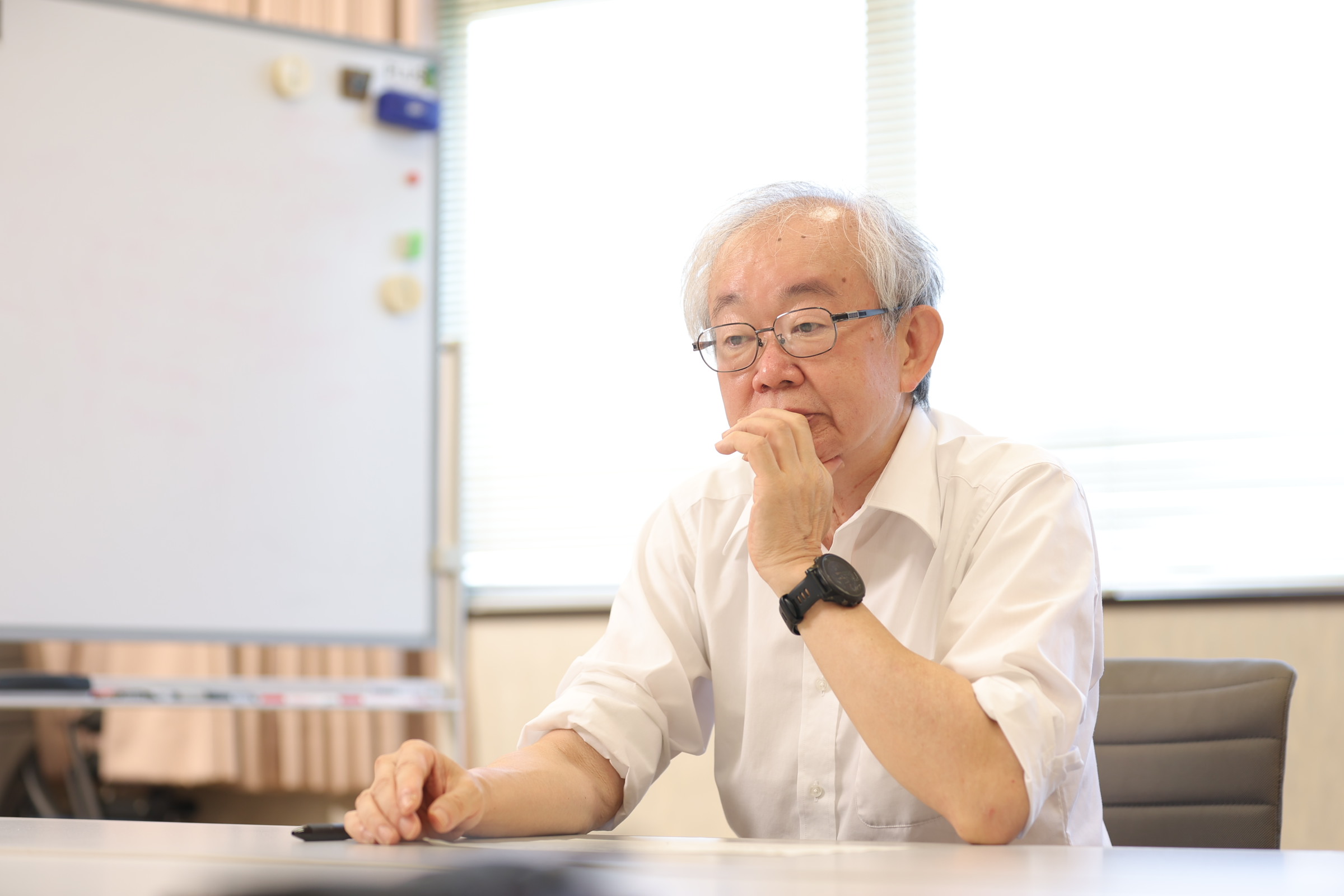
So, what did you learn when you were a student?
When I was a student, I mainly studied pattern recognition-related research. Specifically, as research on image processing, I conducted research on detecting faces in images, compressing image signals without loss of image quality, and stereoscopic vision of images. On the other hand, since I was very interested in law, I was reading a law exam magazine when I went to school. So in the future, if I were to study AI, I thought that it would be interesting to study its application to law because it would have a social impact. In addition, in the laboratory that I belonged to while I was a student, in addition to the research theme of each person, I held study sessions on Formal Logic. In the second boom of AI, logic was the theoretical basis, and that knowledge was also useful when studying the application of AI to law.
When did you enter the Tokyo Institute of Technology?
I entered the university in 1971 and graduated from the Doctoral program in 1980. While I was a student, it was the so-called winter era when AI research was not expected, or funding was not available. I think it is unthinkable now. But when I got a job at the Electrotechnical Laboratory in 1980, it was just the beginning of the second boom in AI, and the timing was very good. It was time for the Electrotechnical Laboratory to launch the “Fifth Generation Computer Project” of the world’s first AI national project. This project was covered by the media as much as it is now, but the second boom went away in a few years. Since there was excitement, the reaction was huge.
Why did the second boom end in a few years?
The second boom was the goal of many researchers to create computer systems that could replace specialists. Many systems were created around the world, including medical diagnostics, machine fault diagnosis, and natural language processing. The Fifth Generation Computer Project tried to integrate the environment for developing these expert systems with a consistent thought, from hardware to basic software, computer language, and application systems. In the project, natural language processing and various application software were developed, but it was disappointing because it was not able to develop an application system enough to cause a breakthrough. We didn’t have enough computer power, and at the time, we had to collect data ourselves to get it. Therefore, the methods that could be used were limited. Also, we had to write all the expertise in the rules. It took a lot of time and effort to write the rules accurately and without omission, and no matter how many rules we made, we could not keep up with them. Now, machine learning, represented by neural networks, is the center. Neural networks can extract knowledge to solve problems from data without having to write rules, so such problems have been eliminated quite a bit.
The Center of Data Science and Artificial Intelligence omnibus classes connect students and companies.
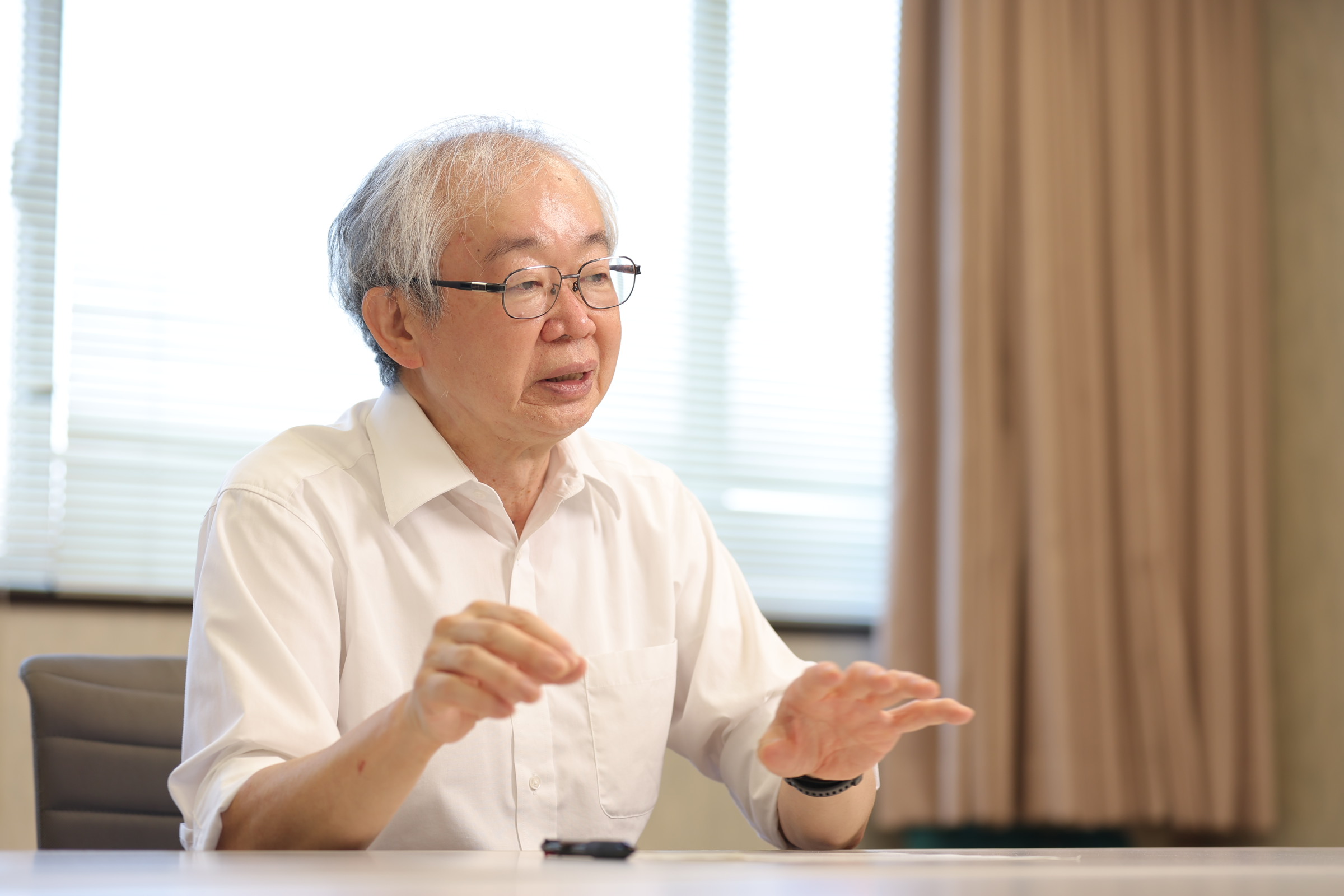
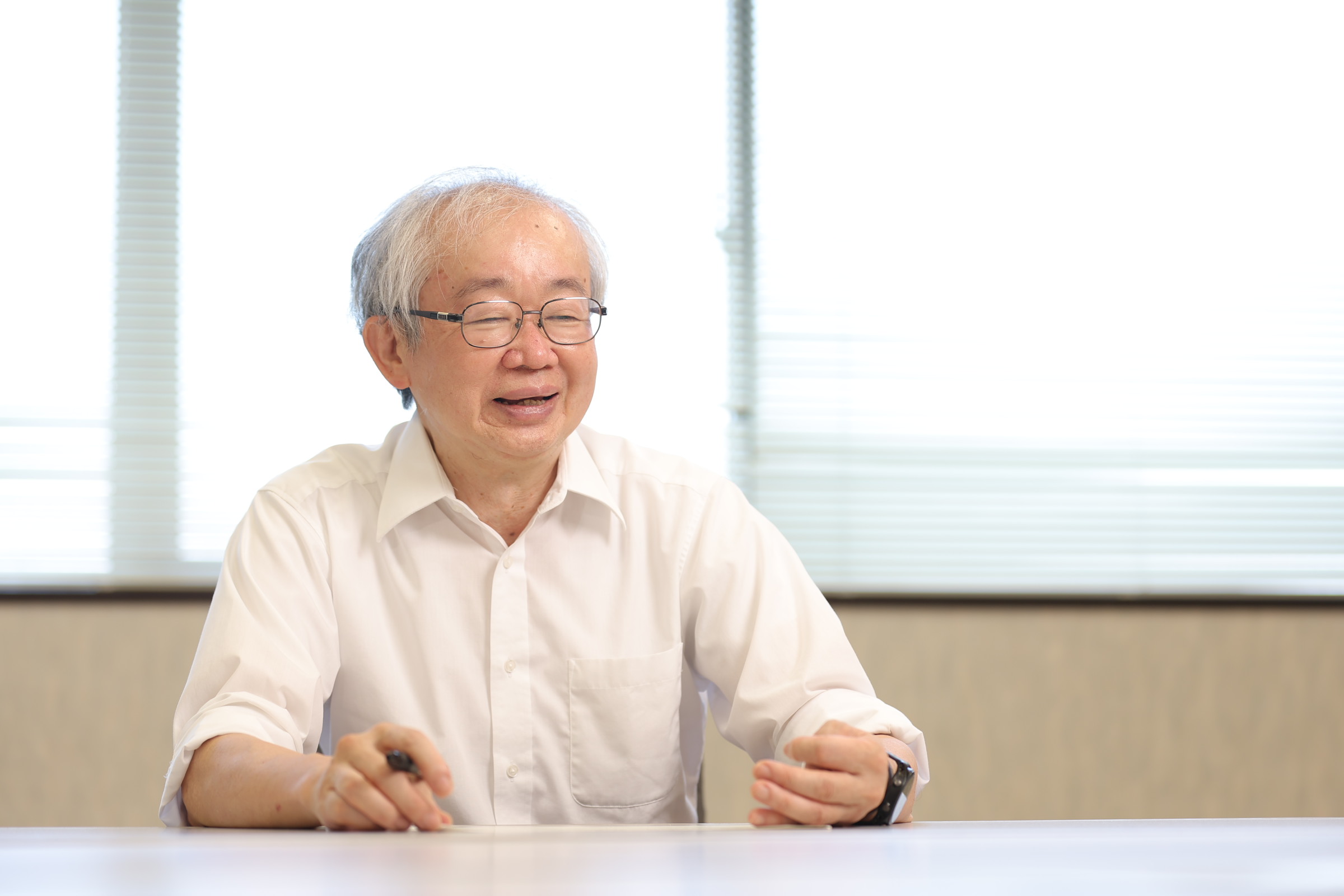
If so, we get the impression that data science and AI, and the Tokyo Institute of Technology, are science and engineering. What is the relationship between them and law in your field of expertise?
I think that data science and AI are not fields that are closed only to them but are studies that demonstrate their abilities in combination with various specialized fields. Law is also one of them, contributing to the prediction of judgments, logical verification of judgments, mediation support, and search for legal information. On the contrary, various research themes in data science and AI can be obtained from that legal field. Recently, law firms also provide services such as contract document review, legal consultation, and judgment prediction for specific trials, using AI, but deep learning is used for these services. Law has a deep relationship with natural language processing and formal logic, so while it is a liberal arts course, there are many parts that are common to science and engineering. In the Fifth Generation Computer Project, I have not only developed application systems such as gene data analysis, Igo system, circuit design support, and legal dispute system in my own team, but I also gave advice on the development of programs for many studies entrusted to companies. Because the computer developed in this project performs parallel processing on a scale of 1,000 units, experience was needed to create efficient programs.
Because of the wide range of points of contact, you invited companies to take omnibus classes at the graduate school.
I think that experience is useful. Graduate school-wide education consists of two main pillars: basic courses and applied and practical courses. The basic courses are taught by faculty members of the Tokyo Institute of Technology and provide education and program exercises on important theories of data science and AI. On the other hand, in the applied and practical courses, we invite associated companies and ask them to give lectures on how data science and AI are applied within companies. About 40 associated companies, including IT, finance, materials, electricity, heavy industry, and construction and civil engineering, participate in the collaboration. If people from various industries give lectures, you will see that data science and AI are being used in unexpected places, I think that students’ perspectives will be expanded, and the motivation for learning in basic courses will increase. However, I think that corporate lecturers may also be confused about what kind of lectures should be given, so I often consult with lecturers about the contents of the lectures and exercise assignments in advance.
You also act as a conduit between the company and the students.
I think that companies expect that. For example, as a company, it can successfully advertise that “material companies use data science in product development like this”, and if students are interested in it, I think that they may think about it as a job target. Every year, the number of students in the applied and practical courses is increasing, and I think that it is very grateful.
In addition to classes, this year, we will hold the “DS & AI Forum”, an exchange event between companies and students, 2 times. Companies introduce that they are doing such things, and after that, we divide them into individual companies to provide opportunities for dialogue between students and companies. I hope this forum will provide students with information to help develop their future careers.
Astro Boy, tennis, law, and Professor Nitta's intimate relationship
You said that when you were a student, you were in the winter era of AI, but did you have the word AI?
In the year I was born, a manga series called Astro Boy began. Everyone in my generation who studies AI grew up watching Astro Boy, and that is why I started to become interested in AI. I think that at the time we were calling it the electronic brain, not AI. 4 years after Astro Boy’s serialization began, the Dartmouth conference was held in the United States to discuss the challenges of getting computers to do intellectual activity, and the word Artificial Intelligence was created there. It was the first AI boom that started from that time, and then there was the second AI boom, and now it is said that it is the third AI boom. When I was a student, it was the winter era between the first boom and the second boom, so there was the word AI, but I think it was not so popular.
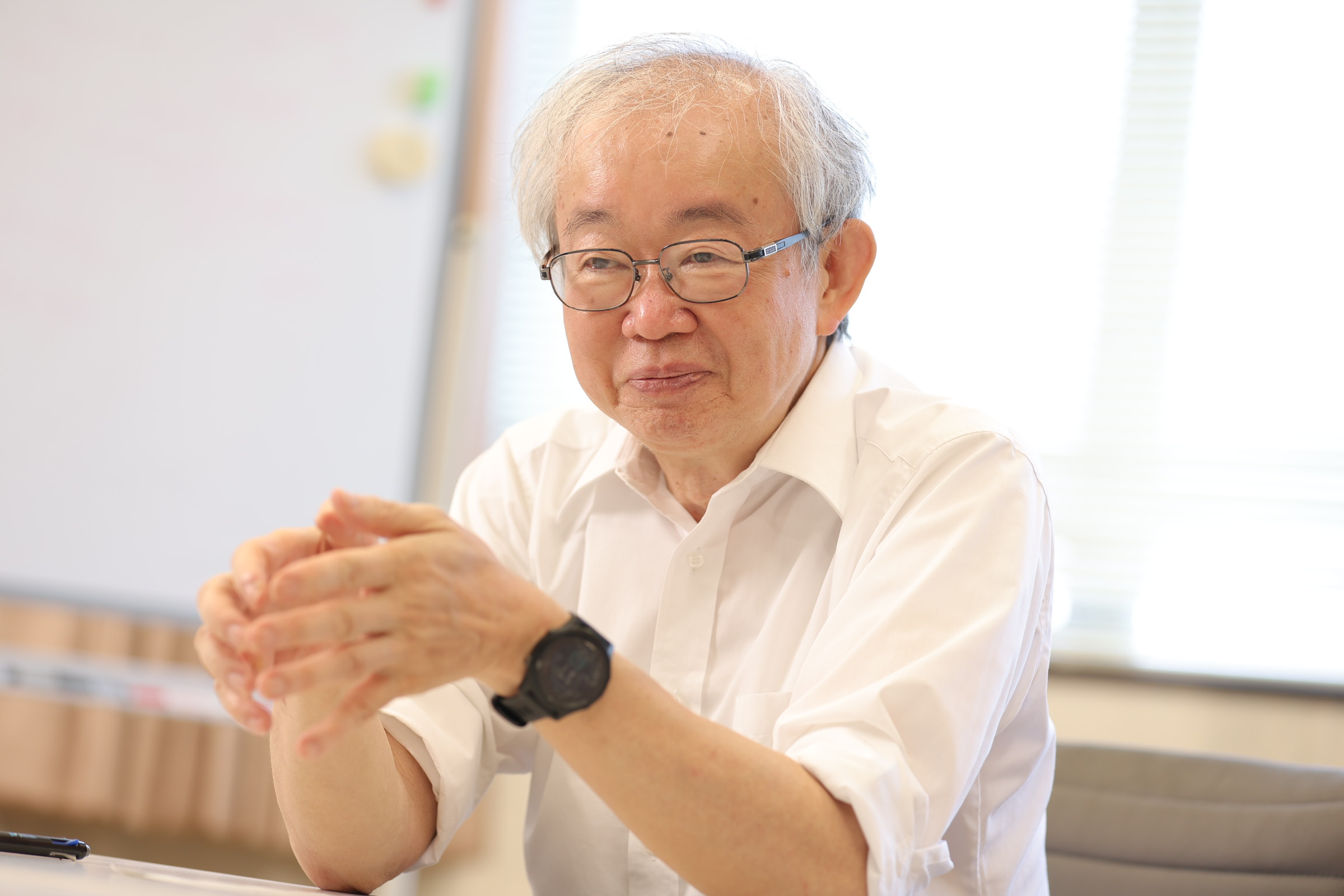
What kind of student life did you have?
My club activity was playing tennis. Since I was able to enter a laboratory blessed with a computer environment, I was playing a simple TV game by myself during my research. I also stayed up all night in the lab obsessed with games. Also, as I mentioned before, I was very interested in law as a hobby, and I read exam magazines. The law also has elements of science, so I think that there are quite a few lawyers who come from science. The law also has a social impact. For example, it is the significance of developing a legal consultation system, but there was a description in an American paper that “It is unfair for the rich to hire a high-level lawyer to give an advantage in the trial, and the motivation to develop a consultation system is to ensure that even the poor can receive a fair trial.”.
Didn’t you consider becoming a legal professional?
After I got a job, I was invited by a law firm to help me study the bar exam if I wanted to change jobs at the law firm because they needed a lawyer in science, but at that time I did not think of becoming a legal professional. After that, when I developed a patent law consultation system at the Electrotechnology Laboratory, I was able to challenge and pass the patent lawyer examination, which is an intellectual property qualification examination, because I diligently studied patent law. At that time, I also received an invitation from a patent office, but in the end, I chose to continue my research and have reached the current point.
Learning in an age when everyone knows data science and AI, like mathematics
Finally, please give a message to the current students and candidates aiming to study at the Tokyo Institute of Technology.
Data science and AI can be the trigger for major innovations in science. If mastering data science and AI, even if you have other fields of expertise, I think that the opportunities to be active in that field of expertise will expand even more. The Tokyo Institute of Technology has prepared the Institute-Wide education curriculum that allows students to study data science and AI regardless of which school they belong to, so please use it more and more.
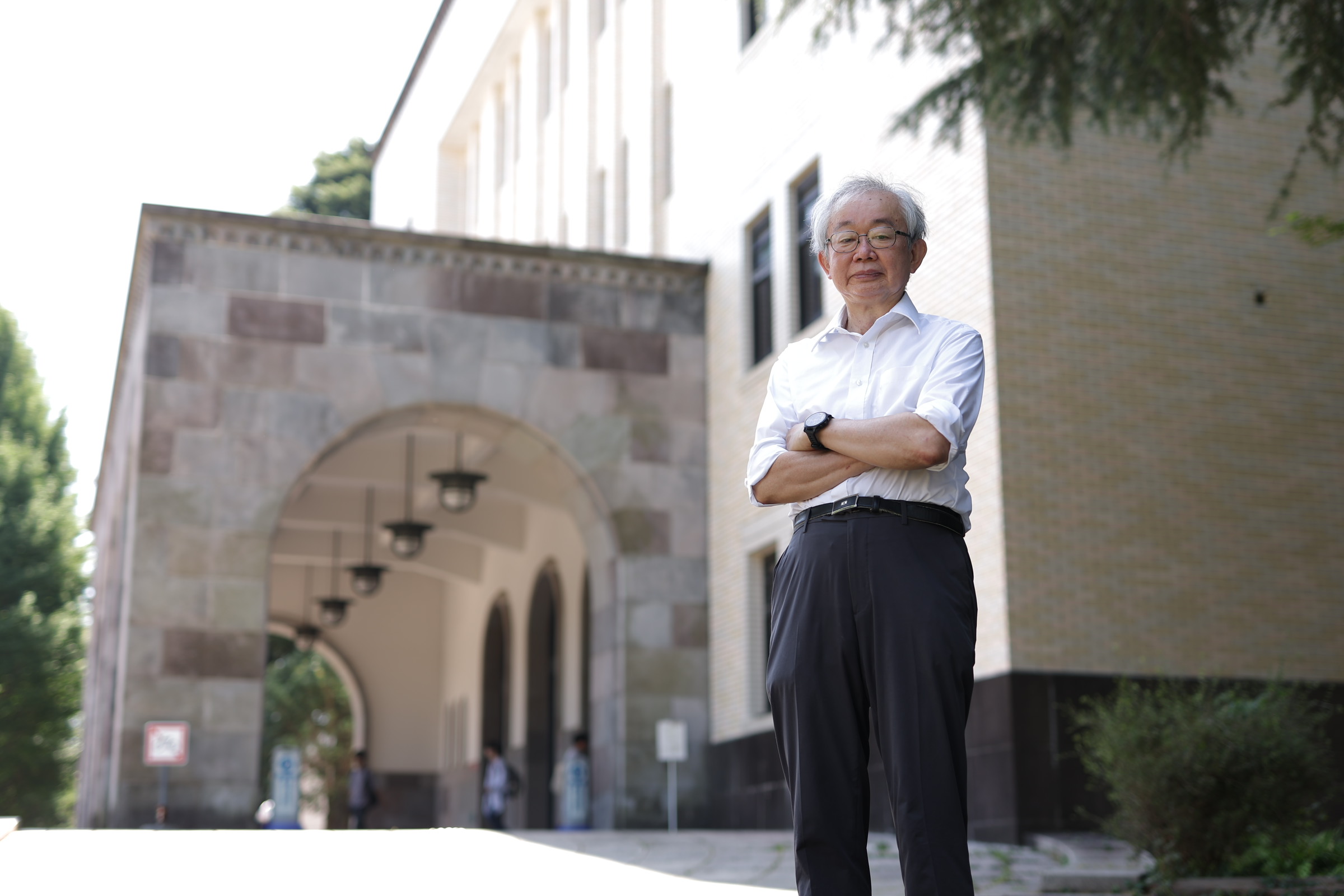
Off-record Talk
In the manga “Astro Boy”, Astro Boy is set to have been completed on April 7, 2003. When the series began in 1952, it would have been assumed that Astro Boy would be completed in half a century. However, even in 2023, 71 years after the series began, intelligent robots like Astro Boy have not yet been created. If you look at the blueprint of Astro Boy, in addition to the parts of the “Electronic Brain” that control intelligence, the parts of the “Heart” that judge right and wrong are drawn. Can current AI research realize the function of the Heart?
Also, the film “Terminator,” released in 1984, was set about half a century later; in 2029, the machine dominates humanity. 2029 is coming soon.
